No products in the cart.
51 New Millennium Education Entrepreneurs
Although only the intellectually honest — and this excludes the vast majority of the country’s Left intellectuals who dominate the academy — will admit it, Indian education is steadily and inexorably being privatised. While post-independence India’s fast-expanding middle class seceded from the public/government school education system several decades ago, of late even aspirational lower middle class and bottom-of-the-pyramid households are voting with their feet — and thin wallets — for the country’s unwarrantedly maligned private education system.
In his well-researched and under-appreciated book A Beautiful Tree (2009), Dr. James Tooley, professor of education at Newcastle-upon-Tyne University, UK, exposed the curious phenomenon of India’s ubiquitous ‘unrecognised’ private budget schools — low-cost primaries established in low-rent and slum habitations — run by education entrepreneurs levying monthly tuition fees of Rs.100-500.
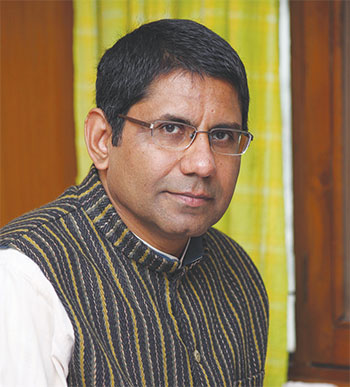 Through numerous interviews with less-than-well-to-do parents and promoter-principals of private budget schools, Tooley proves (and official statistics of several state governments including Maharashtra and Karnataka among others confirm) that there’s a swelling exodus of children from all but the poorest households fleeing dysfunctional government schools defined by decrepit infrastructure, chronic teacher absenteeism, anti-English language prejudice and abysmal learning outcomes, for private budget schools run by dedicated education entrepreneurs mindful of reputation. According to Dr. Parth Shah, founder president of the Delhi-based Centre for Civil Society, the country’s top-ranked think tank, the number of unrecognised private budget schools countrywide is more than 400,000, equal almost to one-third of the country’s 1.40 million recognised primary-secondaries.
Through numerous interviews with less-than-well-to-do parents and promoter-principals of private budget schools, Tooley proves (and official statistics of several state governments including Maharashtra and Karnataka among others confirm) that there’s a swelling exodus of children from all but the poorest households fleeing dysfunctional government schools defined by decrepit infrastructure, chronic teacher absenteeism, anti-English language prejudice and abysmal learning outcomes, for private budget schools run by dedicated education entrepreneurs mindful of reputation. According to Dr. Parth Shah, founder president of the Delhi-based Centre for Civil Society, the country’s top-ranked think tank, the number of unrecognised private budget schools countrywide is more than 400,000, equal almost to one-third of the country’s 1.40 million recognised primary-secondaries.
“More than 100 million of the 230 million school-going children in India are enrolled in private schools, with nearly 40 percent of all students attending less than 10 percent of the total number of schools countrywide, the vast majority of them private. This is confirmed by the Annual Status of Education Report 2012 published by the well-known education NGO Pratham. It shows that the enrollment of children in the 6-14 age group in rural India has risen from 18.7 percent in 2006 to 28.3 percent in 2012, with private school enrollment growing at over 10 percent year-on-year. Real and perceived advantages of private schooling are impacting parents across the country, prompting them to opt for private education for their children. Unfortunately there is little acknowledgement of this reality in the Central or state governments. Indeed, instead of acknowledging the role of private and budget schools and evolving policies to encourage them to improve learning outcomes, governments are stubbornly holding on to outdated policies and mindsets,” comments Anand Sudarshan, hitherto vice chairman and managing director of Manipal Global Education, and currently founder-director of the Bangalore-based Sylvant Advisors Pvt. Ltd, a strategic education advisory firm.
Quite clearly unmindful of official peeves and ideological prejudices, across the demographic spectrum parents and students are opting for superior K-12 and post-secondary private education. And to their credit, despite government and judicial discouragement, driven by the spirit of enlightened self-interest blended with altruism, a growing number of education entrepreneurs are promoting internationally benchmarked capital-intensive schools and higher education institutions across the country.
In our 14th anniversary issue, we present brief profiles and insights into the motivations and aspirations of 51 turn-of-the-century new millennium education entrepreneurs — not only promoters of education institutions, but also entrepreneurs who provide goods and services which help schools, colleges and universities transform from good to great. Their growth and development has been coterminous with EducationWorld, which during the past 14 years has played a significant role in moving education from the outer periphery to near centre of the national agenda.
Dr. Achyuta Samanta
KIIT & KISS, Bhubaneswar
Born in rural Odisha (aka Orissa), despite experiencing desperate poverty Achyuta Samanta worked his way through school and college and graduated with a Masters in chemistry from Utkal University in 1987. After briefly working as a lecturer in a college in Bhubaneswar, he became a social entrepreneur. In 1992-93, he promoted Kalinga Institute of Industrial Technology (KIIT). Since then, the institute has blossomed into KIIT University comprising 18 schools (engineering, business management, architecture, humanities etc) with an aggregate enrollment of 20,500 students from India and abroad and 1,500 full-time faculty. Simultaneously moved by the neglect of Odisha’s socio-economically backward tribal children, Samanta promoted the Kalinga Institute of Social Sciences (KISS), a free-of-charge school offering KG to postgrad education. Today KISS is the world’s largest residential school with an enrollment of 20,000 children.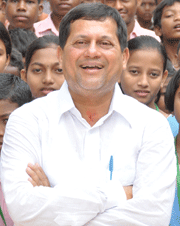
How satisfied are you with the progress of KIIT and KISS?
I am very satisfied with the progress of both these institutions started with a meagre capital of Rs.5,000 in a two-room rented building 20 years ago. KIIT is widely acknowledged as one of the most promising universities in the country and attracts students from all over India and some from abroad. Likewise, the success of KISS which has drawn praise from distinguished scholars and academics worldwide, has given me much satisfaction and happiness.
What are the major constraints on the growth and development of KIIT and KISS?
We suffered the constraints and challenges of all great enterprises started with little capital and support. But I prefer to forget about the past and focus on the future.
How helpful are Central and state government policies?
Both the Central and state governments are helpful within the constraints of the bureaucratic system.
What are your future plans?
KIIT’s growth will be only in Bhubaneswar. We don’t intend to establish KIIT campuses or branches in any other state of India or abroad. However, we intend to greatly improve research, innovation, teaching and placements. Conversely, I have a dream of setting up 100 KISS model schools in Odi-sha and other parts of the country with large tribal populations.
Unwind/de-stress. Talking to people, reading newspapers and watching TV news channels.
Dr. P. Narayana
Narayana Group, Hyderabad
Dr. P. Narayana is founder-chairman of the Hyderabad-based Narayana Group of Institutions which has promoted 500 supplementary learning centres, 50 secondary schools and 270 junior colleges in 11 states across India in addition to engineering, dental, medical and pharmacy colleges with an aggregate enrollment of 300,000 students supported by 30,000 employees. A science postgrad with a Ph D in statistics from Sri Venkateshwara University, Tirupati, Narayana began his career as a maths tutor and lecturer before establishing the first Narayana coaching centre in Nellore in 1985.
What prompted you to start the Narayana Group of Institutions?
I come from a very humble background and most of my family members did not have the benefit of proper education. Shortly after completing my postgraduation in 1979, I began coaching students in mathematics in my house in Nellore. I started the first Narayana coaching centre in 1985.
What were your early challenges?
Since we had no internet in those days, finding quality study material and teachers was very difficult. Also, as the number of students increased, it was difficult to maintain high standards of teaching.
How did you meet these challenges?
I travelled across the country to recruit good teachers and collect study material. Today we have a repository of the best teachers in the country.
How helpful/enabling are the Central and state governments?
I believe that educationists and government must strike a balance between maintaining standards and making schools and colleges sustainable in the long run.
Future growth and development plans of the Narayana Group.
Our constant endeavour is to ensure that our students are given the best education and quality study materials. We have highly motivated teachers and plan to multiply the number of Narayana learning centres in south India and other parts of the country.
Unwind/de-stress. I travel frequently to our centres and colleges and when at home over weekends, I watch a movie with the family.
Unwind/de-stress. I travel frequently to our centres and colleges and when at home over weekends, I watch a movie with the family.
Dr. Vidya Yeravdekar
Symbiosis Group, Pune
A medicine, law and education postgraduate of Pune University, Dr. Vidya Yeravdekar is principal director of the Pune-based Symbiosis International University (SIU) and the Symbiosis Group (SG). Promoted by legendary educationist S.B. Mujumdar in 1971, SG includes 45 institutions with an aggregate enrollment of 32,009 students from 85 countries.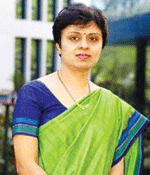
How satisfied are you with the progress of Symbiosis International University and the Symbiosis Group?
Very satisfied. The university is compliant with all the parameters prescribed by the National Knowledge Commission and is certified an A grade university by the National Assessment and Accreditation Council.
What are the major constraints on the rapid growth and development of SIU and SG?
Government restrictions. While the government wants capacity building and expansion in higher education, every proposal sent to the government experiences so much delay that this objective is often defeated.
How helpful are Central and state government policies?
The Central and state governments are anti-private sector. They should not paint all private institutions with the same brush. There are several privately managed universities — Symbiosis, Manipal, and BITS, Pilani — which are doing excellent work.
What are your future plans for SG and SIU?
We would like to promote K-12 schools across India. In higher education, we will focus on increasing research output of the university and of our Symbiosis Institute of Research and Innovation.
De-stressing. Cooking, and spending time with friends from medical college.
Dr. Ranjan Pai
Manipal Education & Medical Group, Bangalore
A qualified medical practitioner with a fellowship in hospital administration from The Children’s Hospital, Wisconsin, USA, Dr. Ranjan Pai is the managing director and chief executive of the Manipal/Bangalore-based Manipal Education and Medical Group (MEMG), the holding company of the Manipal education group — India’s premier professional (engineering, medical, business, hotel management etc) education transnational with campuses in Manipal, Bangalore, Sikkim and Jaipur, and in Nepal, Malaysia, Dubai, Antigua (West Indies). The ten institutions under the MEMG umbrella have 283,134 students mentored by 3,468 faculty.
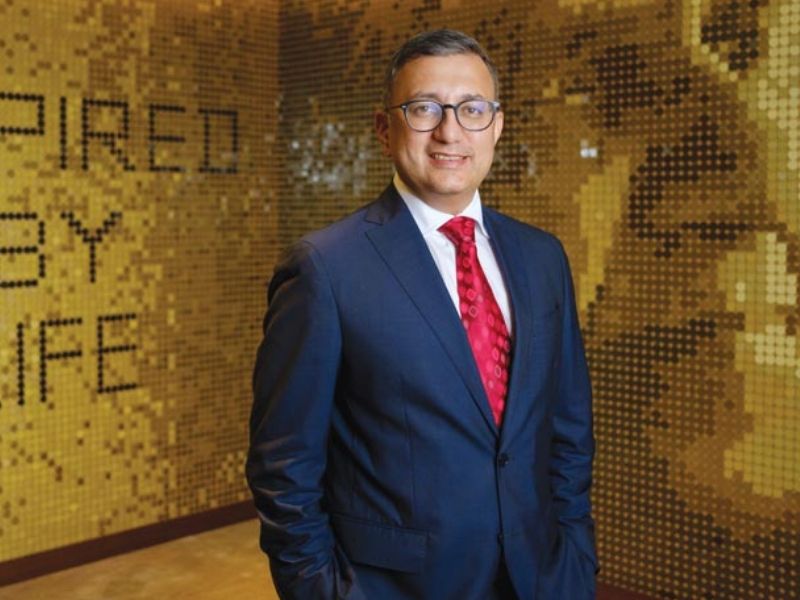 How satisfied are you with the progress of MEMG?
How satisfied are you with the progress of MEMG?
I am fairly satisfied but I feel there is so much more that can be, and needs to be done.
What are the major constraints on the rapid growth and development of MEMG?
Regulatory processes. Approvals take too long and there are no clear and forward thinking policies. India seems stuck in another time, when countries around us have evolved forward-looking policies and processes for the promotion of education institutions.
How helpful are the Central and state governments?
State governments are responsive as they want educators to establish institutions and universities. But policies for universities are formulated by the UGC and Central government. While there are changes and these instit-utions are becoming more responsive, they need to move faster.
What are your future plans for MEMG?
We have recently set up Manipal University, Jaipur whose campus was formally inaugurated earlier this year. The next campus on our drawing board is of Manipal University, Bangalore. We are awaiting government clearances before we start construction.
Our focus will also be on expanding existing campuses and offerings in the Americas, Malaysia and the Middle East, and exploring opportunities in Africa. We are investing heavily in technology-enabled learning, which given the lack of faculty and costs of education, will play an important role in spreading education in the future.
Unwind/de-stress. Cricket, music, movies and spending time with family and friends.
Sanjeev Trivedi
Infiniti Modules, Goa
In 1985, Sanjeev Trivedi, the promoter-chairman of the Bardez (Goa)-based Infiniti Modules Pvt. Ltd, started a software company while in Mithibhai College, Mumbai. After graduating, he worked for the Mumbai-based United Phosphorus. However in 1996, with the sudden demise of his own and wife Sonali’s mother in quick succession, “sensing stagnancy in our inner being,’’ the duo located to the calm of Goa. With Sonali, a commerce graduate of Bombay University having worked in the furn-iture manufacturing industry, the couple promoted Infiniti Modules in a rented 300 sq. metres shed.
Currently the company which specialises in manufacturing school furniture, has two production units spread over 150,000 sq. ft, a workforce of 100 and a client base of 2,500 K-12 schools countrywide (estimated annual revenue: Rs.20 crore). 
What were your major early years challenges?
As a small start-up we had to contend with the financial burden of loan repayments, limited finances etc. Neither of us drew a salary for some years. But this experience taught us to be lean and efficient.
How did you meet these challenges?
With the support of our workers, we survived the recession. We developed new products despite suffering setbacks, slowly increased our clientele and ploughed back all profits.
How helpful/enabling are the Central and state governments?
We were given incentives such as sales and income tax breaks. But even now, it’s very hard for small and medium-scale enterp-rises to cope with the bureau-cracy and red tapism in India.
How satisfied are you with the current status of Infiniti Modules?
It’s a matter of huge satisfaction that we have built a loyal customer base of over 2,500 education institutions which is growing steadily.
What are your future growth and development plans?
We will soon inaugurate our 8,000 sq. ft furniture display and 4,000 sq. ft R&D (research and development) centres in Goa. We want to stay ahead with new products and innovations.
Unwind. Sailing, photography, music, model aircraft, and motorbikes.
Sunil & Ketan Gala
Navneet & Leapbridge Education, Mumbai
Gnanesh (Sunil) Gala, a commerce graduate of Mumbai University, is the managing director of Navneet Education Ltd (NE) and Ketan Gala, an alum of the London School of Printing, and Rochester Institute of Technology, is founder-director of Leapbridge Education (LE, a Navneet subsidiary). NE (annual sales: Rs.800 crore) is a big name in textbooks publishing, e-learning and stationery in western India and LE (estb. 2009) has promoted six preschools in Pune and Mumbai.
.gif) How satisfied are you with the progress of NE and LE?
How satisfied are you with the progress of NE and LE?
SG: Navneet Education — formerly Navneet Publications — has been a highly respected name in text and children’s books publishing for over half a century having printed over 5,000 titles in the English, Hindi, Marathi, and Gujarati languages. Four years ago, we ventured into bricks-and-mortar education with the promotion of Leapbridge which now owns and manages six preschools in Pune and Mumbai. And in 2010, we acquired a stake in the Hyderabad-based K12 Techno Pvt. Ltd which manages 90 secondary schools in Andhra Pradesh. Recently, K12 Techno started its first high school in Mumbai, Orchid International.
KG: With over 550 students in our six preschools, Leapbridge has created new content, infrastructure, and management benchmarks in preschool education. It’s the largest owner-managed chain in Pune and we have drawn up plans to promote more preschools in Maharashtra and Gujarat.
What are your future plans for NE and LE?
SG: Under the leadership of the newly appointed board headed by me and joint managing director Raju Gala, Navneet will extend its footprint in the publications, e-learning and stationery segments. We will also be expanding the K12 Techno Schools chain steadily.
KG: Leapbridge will continue to grow at a steady pace countrywide and strive to set new benchmarks and standards in preschool education.
Unwind/de-stress.
SG: Reading is a good stress buster for me.
KG: Photography is my passion outside of work.
A.C. Shanmugam
RajaRajeswari Group, Bangalore
A.C. Shanmugam is chairman of the RajaRajeswari Group of Institutions (RajaRajeswari Medical College and Hospital, School of Nursing, College of Engineering, etc) and also promoter-chancellor of the Dr. M.G.R. Educational and Research University, Chennai. A law graduate of Bangalore University, former Tamil Nadu legislator and member of Parliament, Shanmugam presides over three educational trusts which administer 25 higher education institutions with an aggregate enroll-ment of 30,000 students spread across Karnataka and Tamil Nadu..gif)
What prompted you to start the RajaRajeswari Medical College and Hospital in 2005?
RajaRajeswari Medical College and Hospital was promoted under the aegis of the Moogambigai Charitable and Educational Trust to produce not just academically qualified doctors but missionaries of health, sensitive to the therapeutic needs of the poor.
Please narrate your history.
In 1985, I constituted the Kannammal Educational Trust to promote the Thai Moogambigai Polytechnic College in Chennai. Three years later in 1988, Dr. M.G.R. Engineering College was founded and in 1991, the Thai Moogambigai Dental College was inaugurated. Both colleges acquired deemed university status in 2003 and transformed into the Dr. M.G.R. University. In 1992, I registered the Moogambigai Charitable and Educat-ional Trust to promote the RajaRajes-wari Group of institutions in Karnataka.
What were your early challenges?
We had a burning desire to promote educational institutions which produce not just graduates and professionals, but also provide holistic education. Finding personnel was a tough task. But fortunately today, we have an excellent team of people executing this mission.
What are your future growth and development plans?
We intend to continuously contem-porise study programmes and infra-structure facilities in our institutions. For instance, in RajaRajeswari Medical College, we plan to set up a virtual lab facility, introduce telemedicine, offer subsidised community healthcare services and sign exchange programmes with foreign universities.
Ryan Pinto
Ryan International Group, Mumbai
An alumnus of the Aston Business School, UK, and Cass Business School, London, Ryan Pinto is CEO of the Mumbai-based Ryan International Group of Institutions (RIGI). Promoted in 1976 by Dr. Augustine & Mrs. Grace Pinto with modest beginnings, RIGI has blossomed into India’s largest proprie-torial K-12 schools chain with 125 schools and an aggregate enrollment of over 250,000 students mentored by 15,000 teachers. Ryan Pinto was appoi-nted CEO of RIGI in 2010.
 How satisfied are you with the progress of RIGI?
How satisfied are you with the progress of RIGI?
Over the past three and a half decades, RIGI has established Ryan International schools in 40 cities across 16 states, as also in the UAE. Significantly, we are not only in the five metros and all tier-I cities but have also reached out to tier-II and III habitations such as Jalna in Maharashtra, Dhamtari in Chhattisgarh, and Shahjahanpur in Uttar Pradesh. We are committed to spreading high-quality English-medium education across India and abroad.
What are the major constraints on the further growth and development of RIGI?
As in all sectors of the economy, education also has challenges. As the education sector is increasingly being privatised, the competition is more intense. But with RIGI well aware of global education trends and practices, we have been able to stay ahead of the competition.
How helpful are the education policies of the Central and state governments?
It’s noteworthy that despite pressing challenges, the Central and state gover-nments are introducing new policies and processes to make education equitable and accessible. On our part, we’ve been passionately serving the cause of providing quality education at several price poi-nts, to benefit all sections of society.
What are your future plans for RIGI?
We are in the process of gearing for the next level. We will continue to grow within India, especially in tier-I and II cities. Simultaneously we intend to extend our footprint in the UAE and South Asia. We also hope to leverage technology to reach high quality English-medium education to inaccessible parts of the country.
Unwind/de-stress. Spen-ding time at home with the family, especially with my nephew and niece.
Beas Dev Ralhan
Next Education, Hyderabad
Beas Dev Ralhan is co-founder and chief executive of the Hyderabad-based Next Education Pvt. Ltd (estb. 2007), a digital education technology company which provides ICT (infor-mation and communication technology) solutions (TeachNext, NextERP) to over 6,000 schools in which over 6 million students use one or more of its products (LearnNext, NextLab, Next Learning Centres etc). An alumnus of IIT-Bombay and London Business School, prior to taking charge of Next Education as investor-CEO, Ralhan acquired invaluable experience as a serial entrepreneur and consultant in the US, UK and Gibraltar..gif)
What is Next Education’s history?
Next was promoted to transform Indian K-12 education with digital technology. In our initial days, we focused on technology-based products and the direct-to-consumer sector. Since January 2011, we have been a fully focused B2B education solutions company which is steadily winning the hearts and minds of customers.
How satisfied are you with the progress of Next?
I strongly believe that transformation of the education space has just started and we have witnessed only the first set of entrepreneurs and companies. Over the next decade, the landscape of solution providers for school and higher education will see changes unimag-inable today. We have to stay hungry and focused so that we remain relevant in this changing landscape, and emerge among the top three education solution providers in the next few years.
What are the major constraints on the growth of the company?
Lack of infrastructure in terms of fina-ncing, and hardware support. Also, a lack of quality consciousness within the parents community and school managements.
How enabling are Central/state government policies?
I believe the government is fully aware of the importance and potential of digital education. In the last five-year plan, government doubled ICT spend-ing. So we can safely say that govern-ment policies are in the right direction.
Future growth and development plans.
During the past five years, we have become one of the top three digital classroom solution providers in the country. Over the next five years, Next Education aims to be among the top three K-12 education solution providers countrywide.
Unwind/de-stress. Reading books on business management and magic realism.
Rajesh Bhatia
Tree House, Mumbai
An alumnus of MS, Baroda and Pune universities, Mumbai-based Rajesh Bhatia quit a successful career in investment banking to set up the first Tree House preschool in 2003. Over the past decade, he has transformed it into one of the largest self-operated preschool chains in India with 410 centres in 50 cities and turnover of Rs.121 crore (2012-13).
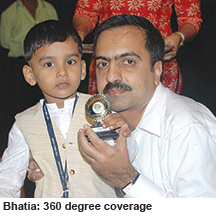 What prompted you to start Tree House?
What prompted you to start Tree House?
In 2002-03, I was looking to admit my son into a preschool of my choice but failed to get admission. That’s when I realised that preschool admission is a big problem for middle class parents. Instead of lamenting the situation, I discerned an opportunity and opened our first preschool in the western Mumbai suburb of Andheri. There was a need and demand for quality, affordable preschools in Mumbai.
My wife and I were hands-on in running our first preschool which we funded by pooling our savings. In two years, the school turned cash flow positive and the next phase of growth was funded internally from profits. We opened four more preschools in 2005-06 and from then on, Tree House has been on a continuous growth path.
What were your major early challenges?
The biggest challenge was convincing trained teachers to work for Tree House. Initially, they interviewed me rather than the other way around! However, I was very lucky with my first set of teachers, some of whom still work with us. The other major challenge was that this was a totally new occupation for me. To compensate, I signed up for a course in pre-primary education.
How helpful/enabling are the Central/state governments?
We abide by all rules prescribed by the government.
Future growth and development plans.
As one of the largest self-operated players in this industry, we aim to acquire a significant market share. We plan to add 90 more preschools in the current year.
Unwind/de-stress. Spending time in classrooms, listen to music, and spirituality.
Rustom Kerawalla
VIBGYOR Group, Mumbai
An engineering graduate of the Manipal Institute of Technology, Rustom P. Kerawalla switched to education after a career spanning 15 years in Indian industry including successful entrepreneurial ventures in the hospitality and financial services sectors before he promoted his first school in Goregaon, Mumbai in 2004. Currently the Mumbai-based VIBGYOR Group of international schools consists of 17 K-12 schools with an aggregate enrollment of 20,000 students in seven cities and five states of the Indian Union.
What prompted you to establish the VIBGYOR Group?
Education needs to be made more enjoyable, experiential and holistic. Schools need to embrace new and innovative methods of teaching to develop our high-potential students into progressive thinkers and lifelong learners, who can confront the challenges of the 21st century.
What were your major early challenges?
The pace at which the VIBGYOR Group is growing and setting benchmarks for quality education, shows that the time and effort spent in putting together a team of people who were in sync with my vision, and with the right mindset and passion, was absolutely necessary.
How did you overcome the challenges involved?
My way of negotiating hurdles is to face them head on, get over them and move ahead. Sometimes I have to pay the price, but the learning derived has been valuable and will stay with me for life.
Future growth and development plans.
My ambition is to script a success story in the education sector which spans presc-hool to higher education. I hope to provide high quality education to all strata of society at varied levels and budgets.
Unwind/de-stress. I like reading and enjoy travelling. The Chinese scholar Sun Tzu’s Art of War has inspired me to confront everyday battles in search of the superlative.
Mansoor Khan
DPS, Bangalore
A business administration postgraduate of Bangalore University, Mansoor Ali Khan is treasurer and chief executive of the K.K. Educational and Charitable Trust (estb. 2000), which has promoted three CBSE-affiliated DPS schools (under licence from the DPS Society, Delhi) in Bangalore and one in Mysore with an aggregate enrollment of 12,000 students mentored by 1,100 teachers.
 What were your early challenges and impediments?
What were your early challenges and impediments?
Our initial challenge was to get our first school on Kanakpura Road ready and running within 120 days. We started constructing the school building in February 2001 and completed 25,000 sq. ft by June 2001 — a matter of great pride for us. We suffered a few hurdles both at the personal and government levels. Getting the required permissions from government authorities was another challenge, but the state government of the day was very helpful and proactive. The other major issue was to convince parents that DPS could be trusted to deliver. We have been able to meet all our promises successfully.
How helpful are the Central and state governments?
We have received encouraging support from the state government as well as from CBSE, Delhi.
What are your growth and development plans?
Our immediate priority is to get DPS, Electronic City, Bangalore, up and running before the start of the academic year 2014. Apart from DPS schools, we plan to launch quality schools under a new banner at the district and taluk levels in Karnataka.
Unwind/de-stress.
By listening to music, swimming and spending substantial time with the DPS cricket team, motivating promising young players.
Ajay Sakhamuri
MyClassboard Educational Solutions, Hyderabad
Ajay Sakhamuri is founder-CEO of MyClassboard Educational Solutions Pvt. Ltd (estb. 2009), a Hyderabad-based company offering online school management and ERP (enterprise resource planning) systems to over 800 education institutions including the Ryan Group of Institutions, Gowtham Model Schools and Calorx Group among others, with an aggregate enrollment of 550,000 students. A mechanical engineering graduate of Vasavi College of Engineering, Hyderabad, Sakhamuri was campus-recruited by Deloitte where he worked as a SAP ABAP consultant, before promoting MyClassboard.com in December 2008..gif)
What prompted you to start MyClassboard?
I am from a business family and always wanted to be an entrepreneur. During college I worked on creating a content sharing (e-learning) website called Campusexpress.co.in to help students share class notes, question papers and other learning material. Because of lack of experience and an unclear revenue model, we were unable to make it successful.
With the support of Dr. Chandra S. Pemmosani — cousin, mentor and founder-CEO of www.usmleworld.com, the world’s #1 test preparatory website for the United States Medical Licencing Exam — I promoted MyClassboard.
What were your major early challenges?
The unique feature of the Indian K-12 education system is that every school has its own style of functioning, and managements are very particular that the ERP system functions the same way. While building the product we had to keep this in mind and incorporate all requirements of our clients.
How did you overcome this challenge?
We very quickly understood that the ‘one size fits all’ approach will never work in Indian education. Today I can say with confidence that we have built a product which is robust and compatible with the Indian education system.
How helpful/enabling are the Central/state govern-ments?
Not much.
Future growth and devel-opment plans.
Our target is to reach 1,000- plus schools by the end of this financial year. More-over, we currently have 25 channel partners including Tata Interactive Services, Next Education, etc which we intend to raise to 100 in the next two years.
Unwind/de-stress. Read business magazines and watch movies.
Nissar Ahmed
Presidency Group, Bangalore
Nissar Ahmed is chairman of the Bangalore-based Presidency Group of Institutions (PGI) which comprises seven K-12 schools, two pre-university (classes XI-XII) colleges and Presidency College, Bangalore which offers undergraduate and postgrad programmes in business administration, commerce, humanities and sciences. Currently PGI has an aggregate enrollment of 15,000 students mentored by 1,000 faculty. Schooled in Bangalore and Mangalore, Ahmed was obliged to quit college and take over the management of a primary school promoted in Bangalore by his uncle, the late Abdul Hameed after his sudden death in 1980.
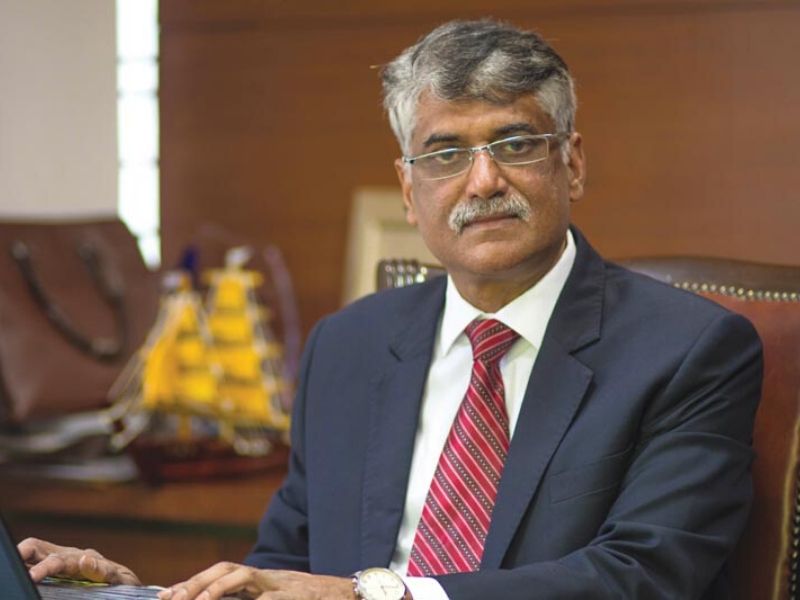 What were your major early challenges?
What were your major early challenges?
My late uncle started our first school in Mahalakshmi Layout, Bangalore in 1976 in a rented house with four students and myself as a novice assistant. After his sudden demise four years later, I had to learn the nuances of education through hard work and persev-erance. I left no stone unturned to make my learning and graduation as an edupreneur as complete as possible. I followed my uncle’s advice that “the man who moves a mountain, begins by carrying away small stones”.
As for challenges, I had to face the usual ones which confront new academic enterprises such as raising finance, building public confidence and facing competition.
How did you confront these challenges?
Quick responses, networking with people and associates, carefully planning strategic initiatives, building a very supportive and selfless team of people, and always invoking the grace of Providence. Also to never give in till success is achieved.
How helpful/enabling are the Central and state governments?
The success of private enterprises in education depends on the promoter’s planning and determination. Statutory protocols and bureaucratic red tape inevitably caused delays. But on the whole, our progress has been steady and peaceful.
Future growth and development plans.
I am pleased to inform you that recently Presidency College has been conferred the status of a private university by the government of Karnataka. We plan to offer professional programmes in engineering and technology, medical sciences, biotechnology, business administration and management. We are also engaged in several social outreach programmes and take our CSR obligations seriously.
Unwind/de-stress. Reading business biographies and business management classics when I travel.
Manjula Pooja Shroff
Calorx Group, Ahmedabad
Manjula Pooja Shroff is founder chairperson of the Ahmedabad-based Calorx Group which comprises 14 Calorx preschools, two DPS schools in Ahmedabad, eight K-12 Calorx Public schools spread across Gujarat, Rajas-than and Maharashtra, as also Calorx Teachers University, with an aggregate enrollment of 8,000 students instructed by 450 teachers. An alumna of Utkal and Delhi universities and IIM-Ahmedabad, Shroff moved to Ahmedabad after her marriage. In 1996 she promoted the first Delhi Public School Society franchise school in Gujarat — DPS, Ahmedabad, and for almost a decade thereafter, dedicated herself to nurturing the fledgling school before promoting the IBO-affiliated Calorx Global School, Ahmedabad in 2006.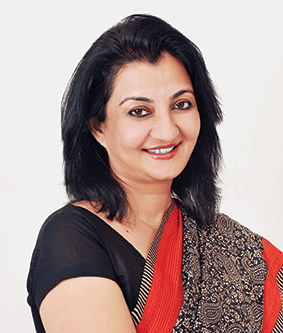
What prompted you to start the DPS and Calorx schools?
In conservative Orissa where I was raised, education was not a high priority, more so for girls. I was determined to change this.
What were your major early impediments?
Starting the first DPS school in Ahmedabad was tough going. I started out at a time when young entrepreneurs were few and far between. A 20-something seeking a DPS franchise didn’t particularly convince the top brass of the DPS society, but I persisted and estab-lished my credentials. Even banks shied away from extending loans to us. However perseverance, planning and determination helped us get an enrollment of over 350 children in the first year itself.
What was your response to these challenges?
Learning continuously and building a body of values and ethics. We didn’t take shortcuts, and built our schools carefully and meticulously.
Future growth and development plans.
Doubling the number of Calorx schools and attaining a turnover of Rs.100 crore in the next five years.
Unwind/de-stress. Travelling, reading, and listening to Indian classical, American country and instrumental music.
Deepak Madhok
Sunbeam Group, Varanasi
An alumnus of Benaras Hindu and Allahabad universities and former bureaucrat Deepak Madhok, is promoter-chairman of the Varanasi-based Sunbeam Group of educational institutions (estb.1972) which comprises 19 schools, a women’s college and three free schools with an aggregate enrollment of 22,000 students mentored by 2,000 teachers.
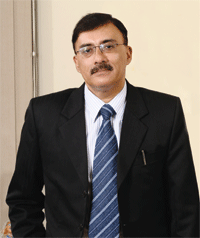 What’s the history of the Sunbeam Group?
What’s the history of the Sunbeam Group?
The seeds of the Sunbeam Group were planted way back in 1972 by Dr. Amrit Lal and Deesh Madhok — my parents — who promoted the first Sunbeam school in Varanasi. In 1990, I was serving as a civic administrator in the Uttar Pradesh Public Service Commission when I took the hard decision of quitting the civil service to help my parents. We have since transformed the Sunbeam Group into Uttar Pradesh’s fastest growing K-12 schools chain.
What were your early challenges?
We pioneered the concept of amalgamation of ancient traditions with modern education. That was a major challenge in this part of the country. Today Sunbeam schools are synonymous with modern education in UP. Starting with 13 students in a rented apartment in 1972, currently we have an aggregate enrollment of 22,000 students studying in state-of-the-art Sunbeam schools across Uttar Pradesh. Moreover our Sunbeam School, Lahartara, was ranked #1 in Varanasi and #2 in UP among co-ed day schools in the EducationWorld India School Rankings 2013.
How helpful/enabling are the Central and state governments?
Not very helpful when it comes to private unaided schools. We have run the race on our own without support of any kind from the Central and state governments. On the contrary, there have been impediments galore down the years in matters of issuing no objection certificates and complying with statutory requirements. Moreover, new laws have added to the confusion. But we have taken all this in our stride.
Future growth and development plans.
We have drawn up a master plan to promote 30 schools across India primarily in tier-II and tier-III towns. At the same time, I want to ensure that all Sunbeam schools set benchmarks in quality education and keep raising the bar of excellence.
Unwind/de-stress. Sports and music.
Viral Parekh
American Institute of Enrichment, Mumbai
Viral Parekh is the promoter-director of the Mumbai-based American Institute of Enrichment (AIE, estb. 2009). A mechanical engineering graduate of the blue-chip Georgia Institute of Technology, USA, Parekh began his career in real estate and development in the US prior to switching tracks to “advance the mission” of AIE in India. Over the past four years, AIE has signed curriculum and content enrichment contracts with 18 schools, and trained over 550 teachers to deliver enriched AIE classroom content to over 12,000 students.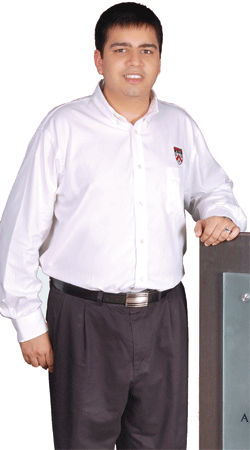
What prompted you to bring the AIE to India?
The economic downturn of 2008 badly hit the real estate business in the US. This prompted me to pursue my interest in education and bring AIE to India, and we established our first office in Mumbai in 2009.
What were your major early challenges?
Our biggest challenge is the lack of confidence school managements and parents have in students being able to cope with the American style curriculums and systems we offer. But gradually, our content enrichment programmes are producing outstanding results and systemic changes in schools throughout India.
What’s your response to these challenges?
We continue to educate teachers and parent communities in urban and semi-urban India. The successful adoption of AIE programmes and pedagogies has enabled our steady growth in India.
How helpful/enabling are the Central/state governments?
We are in continuous discussions with state government officials across India. Our experience is varied. Some states are more bureaucratic than others, but that won’t deter us from propagating our mission of better education through advanced technology and systems throughout the country. We offer special pricing specific to rural India and are making efforts to partner with state governments to improve learning outcomes in India’s schools.
Future growth and development plans.
We hope to be working with 50 private schools and several municipal corporations by August 2014. We have drawn up plans to contract 200 private schools in the next three years, and sign up at least one state government for blanket coverage of public schools.
Unwind/de-stress. Tennis, reading history, exploring technology.
Prashant Bhalla
Manav Rachna Group, Delhi NCR
The elder son of the late Dr. O.P. Bhalla, a renowned philanthropist-educationist of Faridabad who established a slew of education institutions under the aegis of Manav Rachna Education Society (regst. 1997), Prashant Bhalla, an engineering and business management alumnus of Pune University and Amity Business School, is the chancellor of Manav Rachna Inter-national University and chairman of the Manav Rachna Educational Institutions (MREI). The group encompasses four higher education institutions — Manav Rachna International University, Manav Rachna College of Engineering, Manav Rachna Dental College, and Manav Rachna College of Education — and six international schools with an aggregate enrollment of 20,000-plus students mentored by over 1,100 full-time teachers.
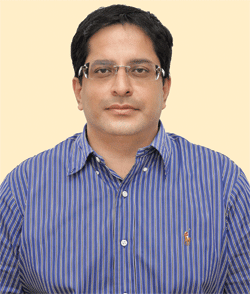 How satisfied are you with the progress of Manav Rachna Group?
How satisfied are you with the progress of Manav Rachna Group?
Very satisfied. Manav Rachna International University admitted its first batch of 180 students into three programmes, and today we offer more than 30 courses.
What were the major constraints on the growth of Manav Rachna Group?
Availability of quality faculty, commitment of students towards excellence, and an over-regulated regime.
How helpful are Central and state government policies?
Central and state government regulations erode the autonomy of education institutions. Government(s) should encourage private education institutions to build capacity. Policy makers have to create a cooperative environment and encourage public-private partnerships.
What are your future growth plans?
Manav Rachna has formulated ambitious plans for establishing high end international schools beyond Delhi NCR. We have tied up with two international majors in school education, viz, Mosiaca, USA and Kunskapskolan, Sweden to establish state-of-the-art schools in India by leveraging technology and modernising teaching-learning processes.
Unwind/de-stress. Sports, especially badminton, social and community development.
Dev Roy
FitKids Education, Bangalore
An engineering graduate of R.V. College, Bangalore, with an MBA from the University of Chicago, and former managing director of Barclays Capital, London, Dev Roy returned to India in 2009 to promote two highly successful companies — Nephrolife (a renal care enterprise) and FitKids Education Pvt. Ltd. The latter provides physical fitness and sports education programmes to schools, colleges and corporates. Currently the company’s portfolio programmes, Leapstart and GAIT (a dance-based fitness progra-mme) have 100,000 student subscribers (each paying Rs.150-220 per month), trained by 150 instructors in 120 schools across 33 cities countrywide..gif)
What prompted you to start FitKids?
When I repatriated in 2009, Bangalore’s open spaces and parks had been replaced by urban sprawl, and I had few options to take my three-year-old son for outdoor activities. With rapid urbanisation, schools have become the last bastions of sport.
Thus Leapstart, the company’s first solution, was born out of a partnership with SPARK, a physical education programme which has a footprint in over 1,000 schools across 30 countries and reaches over 1 million students.
What were your major challenges?
When we actually got down to selling Leapstart, we met countless school principals who were bewildered by the concept. Shortage of high quality equipment was also a critical issue that plagued the system.
Moreover, we had to invest heavily in the professional development of trainers. Every Leapstart instructor is trained by domain experts from our partners who are flown down from the US.
How satisfied are you with the progress of FitKids Education?
We have had a compounded annual growth rate of 150 percent since inception, which helped us reach a topline of Rs.15 crore.
Future growth and development plans.
To serve our customers better, we have developed supplemental learning solutions such as dance education, hands-on STEM experimentation, robotics, and career development. Like Leapstart, all of these products are being developed in close collaboration with global technical partners who are knowledge leaders in their domains. New products will contribute 30 percent of our revenue by 2015.
De-stressing. I practice what I preach. I am an active tri-athlete, currently training for an Ironman competition in Taiwan this month.
Hari Verma
Creya Learning, Hyderabad
Hari Verma is founder-CEO of the Hyderabad-based Creya Learning Pvt. Ltd (estb. 2009). A technology and industrial management postgrad of the National Institute of Industrial Engineering, Mumbai, Verma promoted Creya Learning after working with Tata Technologies in Pune and Singapore where he co-founded G4 Software Technologies Singapore (2001), and as vice-president at GlobalScholar, Belle-veue (USA) and India.
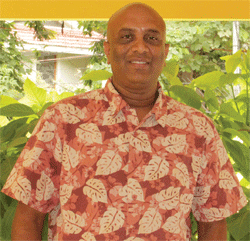 What prompted you to promote Creya Learning?
What prompted you to promote Creya Learning?
When we were trying to build a business model in India around the products/services that GlobalScholar was already offering to schools in the US, I had a chance to visit numerous schools and talk to educators count-rywide. In our field studies I became aware that learning is a mechanical process in Indian school education with children focusing on remembering and the recall process. This is the 21st century, when knowledge is available everywhere. What counts is the ability to apply knowledge. Creya Learning was born out of the need to address this critical gap and help schools make learning more relevant for 21st century children.
What are your major challenges?
School benchmarks. Most schools/parents benchmark their children’s success to academic scores rather than real learning outcomes. Lack of professional development. Most teachers have grown up within a system that values conformity, compliance and control over creativity, risk taking and critical thinking. There is very little in the way of training that helps teachers overcome this old mindset. Past negative experiences. There has been a huge influx of products/services into K-12 education in the past seven-eight years. Most times, they have resulted in bad experiences for school managements.
What’s your response to these challenges?
Continuous professional development programmes for teachers of schools that sign up with Creya Learning. Demonstrating our product and service through full-scale pilots. We design customised programmes for each school, because every school is different.
How satisfied are you with the progress of Creya Learning?
Creya has signed 14 schools across the country in our first full year of operations with 6,000 children enrolled in Creya classes. Moreover, we are working with 40-50 teachers enabling them with contemporary skills centred around STEM, design thinking and experiential learning.
Unwind/de-stress. Reading, golf and cycling.
Sanjeev Vasal
Vasal Educational Society, Punjab
Sanjeev Vasal is chairman of Vasal Educational Society (annual revenue: Rs.20 crore) comprising three K-12 schools (Cambridge International, GEMS Cambridge, IVY World), and IVY World Play Schools, Jalandhar (Punjab) with an aggregate enrollment of 4,000 students and 500 employees. At age 17, Vasal quit college to focus on the family construction business. In 2006, he registered the Vasal Educational Society to promote Cambridge International School, Dasuya.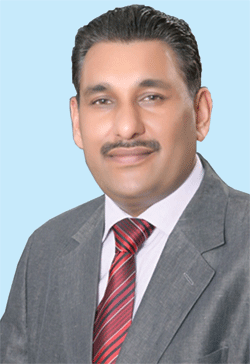
What prompted you to enter into education?
A dearth of good quality schools in Dasuya, my hometown, inspired me to take the initiative to build a school of international standards with emphasis on excellent academics and all-round education.
Recently we have entered into a strategic alliance with the global education firm GEMS to ensure best practices are followed in our schools. Today our schools have proven themselves and our buses ply as far as 40-50 km to transport students.
What were your major early challenges?
When we started off, we successfully put up state-of-the-art infrastructure, but the challenge was to attract high-quality faculty. Equally challenging was the task of convincing parents about the importance of holistic education and new pedagogies.
How did you confront these challenges?
We were able to attract talented teachers by offering good compensation packages and providing continuous professional development through regular training programmes. Orientation sessions for parents also helped to encourage their active involvement.
How helpful/enabling are the Central and state governments?
We didn’t face any serious hurdles from government authorities. Indian education is experiencing major change and I am sure the government will bring about positive policy reforms.
Future growth and development plans.
Our focus is on setting up international schools in tier II and III cities. Our expansion will be through owned and partner schools.
Unwind/de-stress. Yoga, meditation sessions, and pilgrimages.
N.P. Tummala & Rajasekhar Babu
People Combine Educational Initiatives, Hyderabad
Naga Prasad Tummala and Y.V. Rajasekhar Babu are co-founders and chairman and managing director respectively of the Hyderabad-based People Combine Educational Initiatives Pvt. Ltd (PCEI, estb. 2009). Math and engineering graduates of Sagar and Andhra universities, they co-founded PCEI which has promoted 55 preschools, five IBO-affiliated Oakridge Schools and two Westberry Schools in tier-I and II cities in south India, with an aggregate enrollment of over 5,000 children mentored by 500 teachers.
.gif) What is the history of PCEI?
What is the history of PCEI?
Rajasekhar: My childhood friend Naga Prasad and I promoted the Vikas Educational Group in Visakhapatnam in 1993, to prepare school-leavers for medical school and IIT entrance exams. Every year thousands of our students secure admissions in prestigious institutions countrywide. Our success in the test prep business inspired us to think bigger and spread our wings.
What prompted you to promote Oakridge International schools?
Naga Prasad: Vikas Educational Group was engaged in the test prep business. We felt it was not the best type of education. To understand and appreciate what makes a good school, we both travelled and visited over 100 schools within and out-side the country. During our exploration we met eminent educationist Shomie Das who gave shape to our thoughts, dreams and aspirations. Today the Oakridge chain is India’s largest provider of IB education and Asia Pacific’s second largest — testimony to what can be achieved by self-belief, hard work, determination and dedication.
What were your major early challenges and how did you overcome them?
Rajasekhar: PCEI invests about Rs.100 crore to build each Oakridge school. In the early days, we were supported by banks. But beyond funding, it was the public’s hesitation about international curriculums and paying high fees which was the biggest hurdle. However, positive word-of-mouth reviews and testimonials from parents spread fast, and helped us expand our parents base.
How helpful/enabling are the Central and state governments?
Naga Prasad. State governments in Andhra Pradesh have always supported the growth of private education.
Rajasekhar: The Union government recently allowed FDI into education which helps us to access capital at lower cost. Education has now moved to infrastructure category in banks. This allows us to access long-term finance.
Future growth and development plans.
Rajasekhar: We see lot of opportunity and potential to promote and/or manage Oakridge International schools country-wide — especially in Chennai, Pune, Ahmedabad, Delhi NCR and Kolkata.
Unwinding/de-stressing.
Naga Prasad: Reading, movies and quality time with friends.
Rajasekhar: I drop by at one of our schools and stand around in common areas. There is a lot of positive vibration and energy I draw from children. I also like to travel.
Praveen Jain
Pathways Group, Delhi NCR
Praveen Jain is director of Sarla Holdings Pvt. Ltd which has promoted the Pathways Group of Schools comprising three IBO, Geneva-affiliated K-12 schools, and three preschools in Gurgaon and Noida with an aggregate enrollment of 2,700 students. An alumnus of DPS, Mathura Road, Jain dropped out of college when he was 17 to assist his father. In 2000, the family — Pramod K. Jain (father), brothers Prabhat, Prashant and Praveen — ventured into education.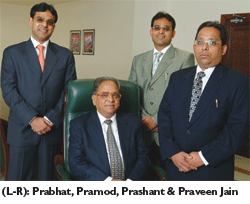
What prompted your family to start the Pathways schools?
In 2000, when we were looking at diversifying our business research revealed that there was a shortage of pedagogically innovative schools in the country. After a lot of unlearning, learning and relearning, we developed our own pedagogical vision. During our research we found IB best fit our vision. Thus the desire to do something relevant and unique prompted us to start Pathways and the first campus was inaugurated in 2003.
What were your major early challenges?
There were many challenges — lack of awareness about the IB programme in India; perception of our being amateurs in education; hiring experienced IB faculty; and educating parents about the need for experiential learning, and that internationalism is not westernisation.
How did you overcome these hurdles?
We conducted several IB seminars in Delhi NCR (National Capital Region) for educationists, parents, experts, and academics from schools and colleges. We created a pool of IB-trained faculty while also developing a training programme for new teachers.
How helpful/enabling are the Central/state governments?
They allowed us to open our schools under a private limited company –– only for international schools –– which wasn’t allowed before. We also got help in converting the use of agriculture land for an educational institution.
Future growth and development plans.
We want to expand our K-12 schools in Delhi NCR and all over India through the licensing and management model. Multiplication of our preschools and office creches across the country during the next five years. We also intend to enter higher education and establish a teachers’ training academy.
Unwind/de-stress. Sports activities one hour every day, and socialising at least twice a week.
Dhanunjaya V.
Silver Oaks, Hyderabad
Dhanunjaya V. is the founder-director of Silver Oaks schools in Hyderabad and Bangalore with an aggregate enrollment of 2,000 students. With a postgrad degree in social work from Andhra University, Dhanunjaya forsook a successful career in LIC and together with a few partners promoted the Nalanda Talent School at Visakhapatnam in 1995, and the IBO-affiliated Silver Oaks School in Hyderabad in 2000.
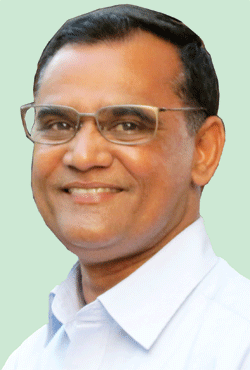 What prompted you to start Silver Oaks, Hyderabad?
What prompted you to start Silver Oaks, Hyderabad?
In 2004, I was selected for an executive development program-me at IIM-Ahmedabad. That was a turning point. I took over a three-year-old unsuccessful school in Hyderabad with 600 students and 40 teachers. I converted this state board-affiliated school into a CBSE and IBO-affiliated institution.
Today, Silver Oaks is a model of international education and charges the lowest tuition fee of all international schools in the world. This year we admitted our first batch of 30 students in Silver Oaks, Bangalore, an internationally benchmarked K-12 school.
What were your early impediments?
I would rather describe them as challenges. I took charge of a school with students who believed in coaching, long hours and rote learning, and exam-oriented teachers. Infrastructure and administrative systems were under-developed.
How did you overcome these challenges?
At IIM-A I learned about budgeting, infrastructure development, and selecting the right people. This helped me to change the mindsets of parent and teacher communities. My emotional balance also helped me appreciate that I am on a mission, not in a business.
How helpful/enabling are the Central/state governments?
Barring a few delays and demands, I have had comfortable transactions with government.
What are your growth and development plans?
With the number of admission applicants at 20 for every vacant seat, Silver Oaks, Hyderabad has transformed into an ecosystem for inspired learning. During the next two years I will concentrate on developing Silver Oaks, Bangalore into the best day school in the city. Meanwhile our research centre at Hyderabad is attracting the attention of international schools and institutions for developing a talented pool of teachers. I want to promote two new schools in the next four years.
Unwind/de-stress. Improving my emotional and happiness quotient. Time with the family is my first priority and reading books the next.
Atul Temurnikar
Global Schools Foundation, Singapore
An engineering graduate of the Visvesvaraya National Institute, Nagpur with an MBA from the University of East London, Atul Temurnikar is chairman and co-founder of the Singapore-based Global Schools Foundation (estb. 2002). After working with HCL and IBM in Singapore for ten years, in 2002 Temurnikar promoted the first Global Indian International School (GIIS) in Mount Sophia, Singapore. Currently GIIS has 21 campuses in seven countries including eight in India, with an aggregate enrollment of 13,000 students mentored by 800 teachers.
What prompted you to start the Global Indian International schools?
After working for ten years in the corporate world, I felt the need to venture out on my own, with a strong urge to give back to society. I resolved to build high quality affordable schools for Indian and other expatriates in Singapore and South-east Asia. With the support of family and friends, I pooled my savings to start the Mount Sophia school campus. Today we have 21 campuses in seven countries including three in Singapore and eight in India.
What were your early challenges?
Setting up our first school in Singapore was uncomplicated. Singapore has evolved into a global education hub due to enlightened government policies. All our campuses were granted approvals on e-mail, and govern-ment officials were willing to go the extra mile to support our endeavours.
In India given the fact that FDI (foreign direct investment) in education is restricted, GIIS made a presentation to the Union ministry of commerce requesting exemption. In September 2011, the government permitted FDI in educational institutes in India, opening the doors for investment in land for education. Since then GIIS has been successfully promoting schools in India.
Future growth and development plans.
In July 2012, the International Finance Corporation made an investment of $25 million (Rs.153 crore) in the Global Schools Foundation which will enable us to promote GIIS schools in Indonesia, Vietnam, India and the Middle East.
Unwind/de-stress. I practice yoga and exercise regularly. Spending time with my family keeps me totally stress-free.
Reshma Shrinivas
WeCare Learning, Bangalore
Reshma Shrinivas is founder-managing director of the Bangalore-based WeCare Learning Pvt. Ltd (estb. 2008), a company which owns and operates eight early childcare centres and India’s largest corporate onsite childcare centre (SAP Labs) — all in Bangalore. A computer science graduate of Bangalore University, National Com-puting Centre, UK, and Sikkim Manipal University, Shrinivas served with Aptech and Satyam Computer Services and as a consultant in the US before promoting WeCare Learning five years ago.
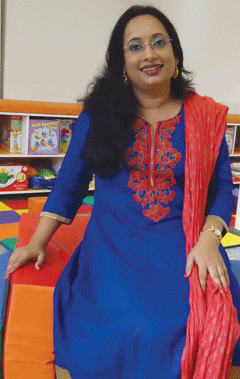 What prompted you to start WeCare?
What prompted you to start WeCare?
When I was working with Satyam Computer Services I noticed a huge increase in the number of women exiting the workforce after childbirth. This prompted me to examine the option of promoting quality early childcare centres in close proximity to working mothers.
What were your early challenges?
Finding trained ECE (early childhood education) staff was a challenge and continues to be so. Educating Indian parents of the difference between an early childcare and learning centre and a crèche, is an ongoing endeavour. Moreover, explaining the benefits and return on investment in on-site childcare centres or partnerships to corporates, was another challenge.
How did you overcome these challenges?
An in-house training programme culminating in a diploma in ECE from IGNOU (Indira Gandhi National Open University) has been our solution to meet the dearth of qualified early educators. Ongoing parent workshops have help-ed in engaging the parents community.
Our parents have emerged as our champions, and are responsible for all our on-site centres as well as our 200-plus corporate partnerships.
How helpful/enabling have the Central/state governments been?
ECE is not regulated by government as yet.
Future growth and development plans.
Our growth strategy is steady and organic, and our goal is to launch three-five new centres every year. The demand from corporate customers and our extended parent network has encouraged us to explore opportunities in Chennai, Hyderabad, Pune and Mumbai.
Unwind. Cooking and experimenting with international cuisines. I watch latest movies in five languages!
Fatema Agarkar
JBCN Education Group, Mumbai
Fatema Agarkar is managing trustee of the Mumbai-based JBCN Education Group, which owns and manages nine Children’s Nook preschools and three K-12 JBCN International schools with an aggregate enrollment of 2,100 students. An alumna of Mumbai and Birmingham universities, Agarkar served with Commerzbank, Times of India and Egon Zehnder International before co-founding JBCN Education with well-known educationist Pinky Dalal in 2000. The core management team also includes Kunal and Hemali Dalal.
What prompted you to start JBCN Education?
JBCN Education has been built upon the early work done by Mrs. Dalal with the Children’s Nook group of preschools. Over the past 13 years, the number of Children’s Nook preschools in Mumbai has grown to nine. Moreover, we have promoted three K-12 JBCN international schools in Mumbai and our cons-ultancy wing has helped set up international schools in Hyderabad, Mumbai, Kolkata and Ahmedabad. We also manage a school called JBCN Pan Academy for children with special needs.
Our institutional objective is to create open, flexible and progressive learning environ-ments combining the best of latter day teaching-learning practices from around the world, adding an Indian perspective and enabling all stakeholders — parents, teachers, and learners — to enjoy the journey rather than focus on outcomes.
What were your major early challenges?
Real estate identification was our biggest challenge. However, thanks to our investor Rakesh Jhunjhunwala, this challenge has been met. Construction permits and paperwork which are part and parcel of all new initiatives have been managed with a strong network of qualified employees and goodwill generated by the brand.
How enabling are the Central/state governments?
As we are a private education group running preschool and international programmes, we have received adequate support from state and local governments when required.
Future plans.
We are working on a plan to span the entire learning spectrum from preschool to undergrad education, and partner with well-reputed universities abroad to offer their study programmes in India. We are also looking at establishing vocational education and teacher training centres across the country.
Unwind/de-stress. Read-ing and spending time with my eight-year-old son Raj and former test cricketer husband Ajit.
Vivek Bhasin
Young India Films, Chennai
Vivek Bhasin is director of Young India Films, a Chennai-based partnership firm offering English language labs, digital classroom solutions, public address systems, etc to over 25,000 education institutions. A graduate of Loyola College, Chennai, Bhasin is also director of Clarity India Learning Pvt. Ltd which offers English learning solutions for primary and pre-primary students.
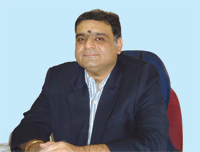 What prompted you to start Young India Films (YIF)?
What prompted you to start Young India Films (YIF)?
YIF was promoted in 1962 by my grandfather and father. It began with distributing movies in north India for Columbia Pictures and Metro Goldwyn Mayer. In the mid-70s, we tied up with RCA Photophone to market their 16 mm film, overhead and slide projectors. Today we provide the most technologically advanced resources for education institutions.
What were your major early challenges?
The biggest hurdles were lack of understanding of our products, unwillingness of institutions to adapt, change or innovate, and shortage of budgets for investment in education technology products.
How did you overcome these challenges?
By constantly propagating the benefits of using technology in education through extensive demos/roadshows, special discounts, and making presentations to school and institut-ional managements as well as state and Central governments.
How helpful are the Central and state governments?
The Central and state governments are proactive, though in the initial years, it was difficult to get any budget sanctioned for education products due to lack of awareness. We had to make constant representations to government officials to persuade them.
Future growth and development plans?
We’ve made plans to sign up more distribution partners to facilitate delivery of our products and solutions countrywide, and to add additional products to our current portfolio. Recently, we have developed K-12 content mapped to the NCERT/CBSE syllabus. The content is currently available in English and Hindi with other regional languages to be added in the future.
Unwind/de-stress. Travelling, long drives and playing squash.
Lina Ashar
Kangaroo Kids & Billabong High, Mumbai
Schooled in the UK and Australia, and an education and English literature graduate of Victoria College, Melbourne, Lina Ashar acquired intensive classroom teaching experience in Melbourne. After migrating to India she promoted the Kangaroo Kids (KK) preschools and Billabong High (BH) schools under the franchise model in 1993 and 2000 respectively. Currently there are 100 KK preschools and 20 BH schools with an aggregate enrollment of 25,000 students mentored by 2,500 teachers in India, Dubai, Maldives and Doha. 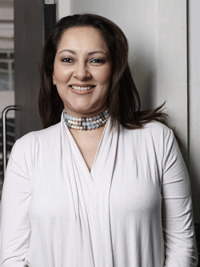
How satisfied are you with the progress of KK and BH?
We were voted the most trusted brand in education, in the same league as IIM and NIIT by the Brand Trust Report, 2012 –– a ranking based on users/customers’ votes. This says a lot about our academic programmes, pedagogy and 20 years of hard work.
What were the major constraints to the growth of KK and BH?
Since I began with little capital, my expansion was through the franchising route, and all available finances were spent on creation of the curriculum delivery funnel that teachers could use, and teacher training tools. Experience has taught me that pure focus on the franchise route, even though it’s the quickest way to expand, makes the brand vulnerable. We now grow through a balance of franchised and owned schools.
How helpful are Central and state government policies?
The intentions of government policies are good but not the execution, and neither are ground realities taken into account. For instance, Billabong High pays commercial rates for real estate, gets billed for all utilities at commercial rates and then we are dealt a large socialist hand. Such policies will deter future entrepreneurs from investing in education. Likewise the Right to Education Act, 2009, is a big blow to all non-minority private education providers.
What are your future plans for KK and BH?
We are in an advanced stage of designing content and curriculums that protect quality even after expansion — a critical issue that has held us back all these years. With this, we plan to double the number of KK and BH schools in three years, and build a team that will be able to service this growth.
Unwind/de-stress. Reading, travelling, dancing and socialising.
Rohit Mohindra
Raj Mohindra Consultants, Mumbai
Rohit Mohindra is director of the Mumbai-based Raj Mohindra Consultants Pvt. Ltd. An electrical engineering and business management alumnus of Lafayette College, USA and IIM-Bangalore, Mohindra worked in the US and with Mahindra and Mahindra in Mumbai before joining Raj Mohindra Consultants (RMC) — a company promoted by his father Raj Mohindra — in 2000. Since it was incorporated in 1998, RMC — a consultancy specialising in advising and aiding promoters of K-12 schools — has been project cons-ultant to a number of leading schools including the Dhirubhai Ambani International School, Mumbai, Ecole Mondiale World School, Mumbai, Pathways World School, Aravalli and Niraj International, Hyderabad among others.
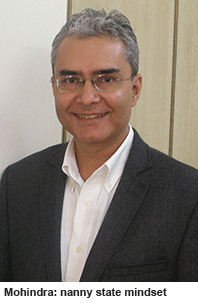 How satisfied are you with the progress of RMC?
How satisfied are you with the progress of RMC?
Very satisfied. We have been consultants to four of the Top 10 international schools ranked by EducationWorld last year and in 2013.
How helpful are Central and state government policies for the promotion of private sector schools?
Neither the Central nor state govern-ments provide much assistance to private education, whether it is by way of affordable land, infrastructure, funding, or policy clarity. The recent CBSE notification prohibiting franchising is a typical example of the sudden policy shifts of government and exam boards. Most state governments have legislated complex rules for granting permission to promote schools. This creates too many opportunities for rent seeking.
What are the future plans of RMC?
We will continue to work closely with our clients and support them at all stages of the planning and implementation processes. Having noted that schools lack well-articulated operating policies, RMC has prepared detailed policy manuals covering areas such as operating procedures, governance, HRD, safety, PTA, drugs, sex and alcohol etc. Simultaneously after considerable research, we intend to publish manuals on school area planning, building eco-friendly campuses, establishing safety norms and moving towards inclusive education.
Unwinding. Travelling and swimming.
Also read: 25 Leaders reinventing K-12 education














Add comment